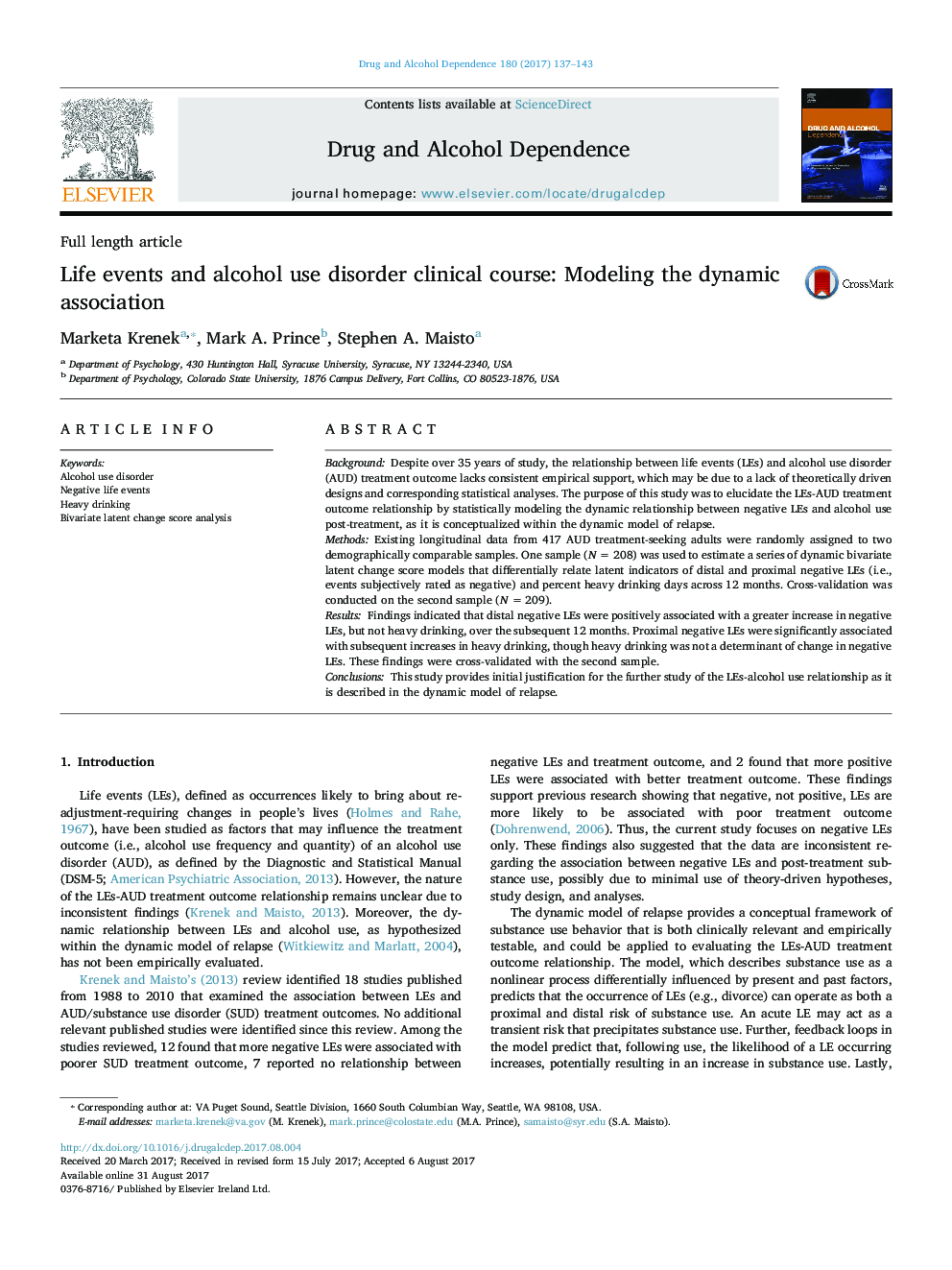| Article ID | Journal | Published Year | Pages | File Type |
|---|---|---|---|---|
| 5119855 | Drug and Alcohol Dependence | 2017 | 7 Pages |
â¢Bivariate latent change score models tested the life event-alcohol use relationship.â¢The optimal model reflected a bidirectional life event-alcohol use relationship.â¢Negative life events were associated with increases in subsequent heavy drinking.â¢However, heavy alcohol use was not associated with changes in negative life events.â¢These findings were cross-validated using a comparable sample.
BackgroundDespite over 35 years of study, the relationship between life events (LEs) and alcohol use disorder (AUD) treatment outcome lacks consistent empirical support, which may be due to a lack of theoretically driven designs and corresponding statistical analyses. The purpose of this study was to elucidate the LEs-AUD treatment outcome relationship by statistically modeling the dynamic relationship between negative LEs and alcohol use post-treatment, as it is conceptualized within the dynamic model of relapse.MethodsExisting longitudinal data from 417 AUD treatment-seeking adults were randomly assigned to two demographically comparable samples. One sample (NÂ =Â 208) was used to estimate a series of dynamic bivariate latent change score models that differentially relate latent indicators of distal and proximal negative LEs (i.e., events subjectively rated as negative) and percent heavy drinking days across 12 months. Cross-validation was conducted on the second sample (NÂ =Â 209).ResultsFindings indicated that distal negative LEs were positively associated with a greater increase in negative LEs, but not heavy drinking, over the subsequent 12 months. Proximal negative LEs were significantly associated with subsequent increases in heavy drinking, though heavy drinking was not a determinant of change in negative LEs. These findings were cross-validated with the second sample.ConclusionsThis study provides initial justification for the further study of the LEs-alcohol use relationship as it is described in the dynamic model of relapse.
